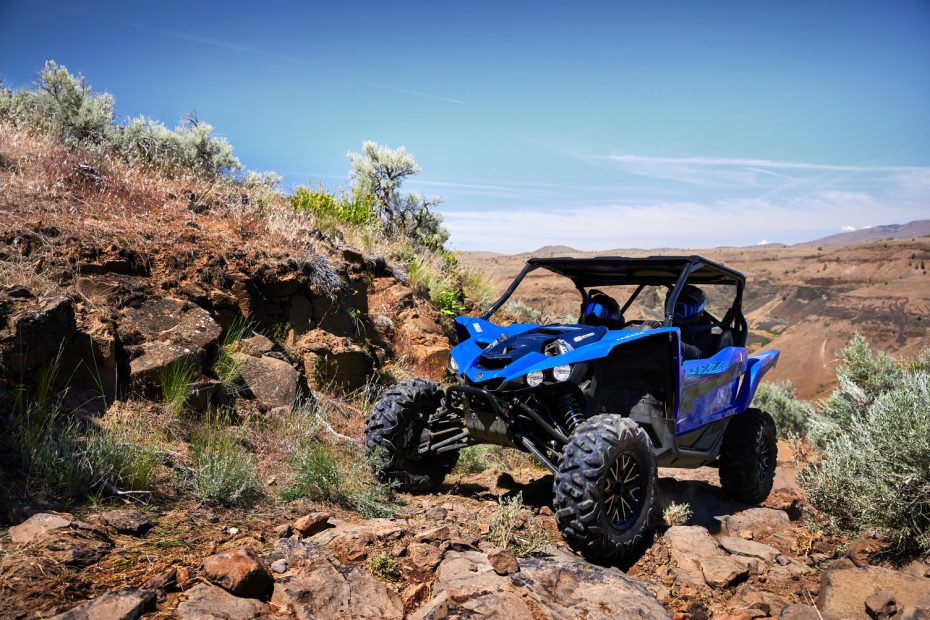Adventure awaits just beyond the horizon, but before you go, make sure you have the correct vehicle for the voyage. Use a VIN Lookup tool if you are interested in researching the history and details of any automobile. Choosing a solid off-road vehicle entails more than just looks and power; it includes a variety of factors ranging from drivetrain to ground clearance. Let’s look at these factors to assist you in picking the ideal partner for your off-road adventures.
Purpose of the Off-Road Adventure
Your intended use will play a significant role in the type of vehicle you choose. Are you planning to traverse rocky terrains, cross water bodies, or just take gentle rides on dirt paths? A rock crawler will differ significantly from a desert racer. Understand the purpose, then choose a vehicle tailored for that specific terrain.
Furthermore, there are details to consider even within specific terrain types. For example, if you want to tackle sand dunes, you’ll need a vehicle with plenty of torque and the proper tire requirements. In contrast, heated mirrors, cold-weather starting capabilities, and specialized traction control become critical in snowy or ice terrain. In essence, it is not just about the overall terrain type, but also about the unique problems that each terrain brings. By focusing on these details, you can ensure that your vehicle is not only suited for off-roading in general but also for the specific trips you have in mind.
Four-Wheel Drive (4WD) vs. All-Wheel Drive (AWD)
4WD systems offer better traction in extreme off-road conditions compared to AWD. In 4WD, the driver can manually switch between two-wheel drive and four-wheel drive as needed. AWD, on the other hand, constantly sends power to all four wheels, making it suitable for light off-road trails but possibly lacking in very challenging conditions.
The distinction between 4WD and AWD goes beyond traction capabilities. Other elements influencing this option are fuel efficiency, maintenance expenses, and general vehicle handling on ordinary roads. Because of the increased weight and technical complexity, 4WD cars may burn more fuel. When driving in normal conditions, the option to switch out of 4WD helps compensate. Because AWD systems are always engaged, they can provide smoother handling and transition in changing road conditions, although they may compromise fuel efficiency marginally. In essence, the choice comes down to your principal use; if you regularly switch between harsh terrain and conventional roads, 4WD may provide more versatility. AWD may be a more fluid and convenient solution for individuals who occasionally travel off the main path but mostly drive in urban or light trail conditions.
Ground Clearance & Approach/Departure Angles
Ground clearance refers to the distance between the vehicle’s lowest point and the ground. A higher ground clearance ensures the vehicle can pass over obstacles without damage. Additionally, pay attention to approach and departure angles – the angles at which a vehicle can approach or leave an obstacle without scraping.
While ground clearance and approach/departure angles are important for avoiding underbody damage, they also have an impact on a vehicle’s overall stability and center of gravity. A vehicle with a very high ground clearance may be more prone to tipping or rolling over, particularly while making abrupt bends or negotiating side slopes. The vehicle’s design and weight distribution both play a role in avoiding these dangers. Furthermore, while necessary for difficult terrain, approach and departure angles can modify the vehicle’s aerodynamics and overall front and rear appearance. As a result, while optimizing for off-road capabilities, it is critical to strike a balance to ensure the vehicle stays safe and practical for everyday use.
Tires and Suspension
Tires are your direct connection to the ground, so choosing the right ones is vital. Mud-terrain tires, for instance, have deep treads perfect for muddy conditions, while all-terrain tires offer a balance between off-road capability and on-road comfort. Your vehicle’s suspension should also be up to the task, providing both durability and flexibility.
When it comes to durability and performance, the sidewall strength and compound composition of the tire are crucial. A stronger sidewall prevents punctures when exposed to sharp pebbles or debris, which is especially important in off-road situations. The tire composition can influence the tire’s grip on a variety of terrain, from slick rock to saturated mud. Similarly, suspension isn’t simply for shock absorption; it’s also for adjusting to different terrains. Modern off-roaders may have adjustable suspensions that can be elevated or lowered to meet the needs of the route, ensuring ideal clearance and riding comfort. Tires and suspension systems, in essence, are dynamic components that require careful selection and occasional fine-tuning to extract the greatest performance customized to certain circumstances.
Vehicle’s Weight and Size
A lighter vehicle might be more maneuverable and put less stress on its mechanical components, while a heavier one might offer stability in certain terrains. Similarly, the vehicle’s size can determine its capability in narrow trails. Strike a balance based on your needs.
Furthermore, the weight distribution of a vehicle is critical to its off-road performance. A well-balanced vehicle can handle difficult terrain with greater ease and less risk of being trapped or toppling. Furthermore, the size and weight of a vehicle might affect its towing capacity and luggage space, which are important considerations if you intend to transport big equipment or set up camp in distant places. As a result, while it may be tempting to focus exclusively on compactness or toughness, the balance of weight, size, and distribution genuinely defines a vehicle’s flexibility and efficiency in the wild.
To summarize, off-roading is an exciting experience, but the correct vehicle can make all the difference. Weigh your alternatives and conduct a careful study to discover the ideal off-road companion to fit your adventurous personality. Best wishes!
